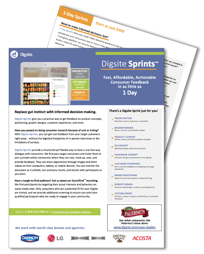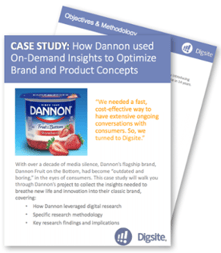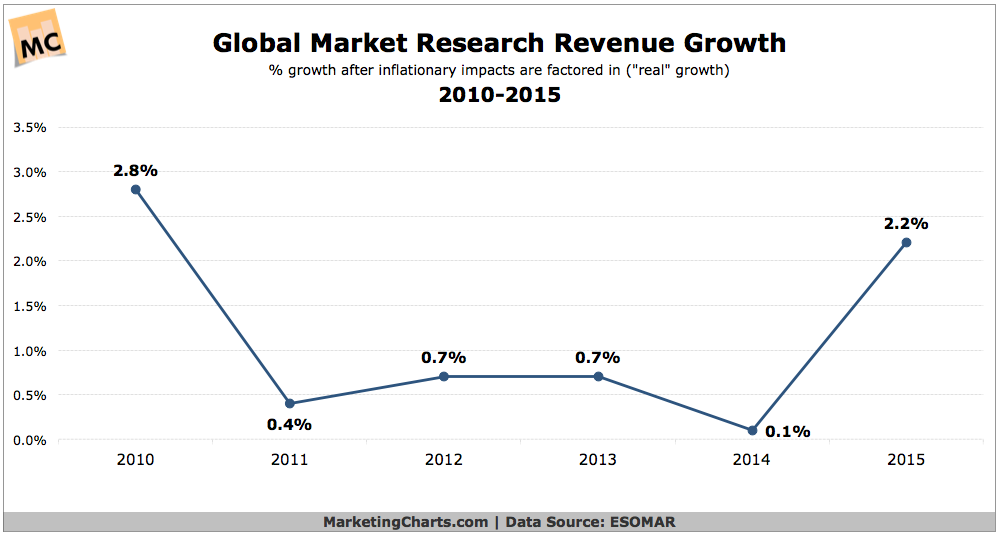The pace of change seems to be growing exponentially everywhere you look. Companies striving to remain relevant to consumers need to be prepared. Iterative InsightsSM enable you to do just that.
In this blog post, we'll help you:
- Learn how technologies empower your business to pivot at a moment's notice
- Figure out whether your team is ready to handle a fire drill situation
- Understand the impact of delayed reactions when responding to market research

In the world of marketing, not a whole lot goes as planned. Regardless, business moves quickly. To adapt to changing consumer sentiments and evolving market trends, companies need to be able to quickly change course when the data tells them to. To do that, they need to be flexible.
No matter the industry, the market can seemingly change overnight. Maybe a competitor launches a new product. Maybe a new industry report hypes a health benefit your product can deliver, giving you an excellent opportunity to grab some market share.
Whatever the case may be, businesses need to be able to recognize these shifts, understand them immediately and respond to them quickly if they wish to remain competitive and continue growing. So the trick is figuring out how to innovate while remaining aligned with changing consumer needs. That way, you are able to make the right adjustments to products and services in real time—or as close to real time as is possible.
Thanks to Iterative Insights, high-quality research data can be immediately available. When the winds start blowing in a different direction, you can rely on Iterative Insights to recalibrate your ideas and come up with a better approach.
Here's a real world example of this approach: We recently helped Dannon examine some new packaging and branding concepts in order to help them refresh their Fruit on the Bottom line. You can get the full case study here:
Can You Respond to a Fire Drill?
Is your team prepared to respond to a fire drill at a moment’s notice? If not, it’s time to make some changes.
Imagine you’re in the middle of the product development lifecycle and you’re eyeing down your targeted release date. Everything looks good and you’re sticking to your schedule. All of a sudden, something changes. Your competitor, for example, could push something to market sooner than expected. Or maybe the material costs rise and suddenly that $400 gadget you’ve been developing doesn’t seem reasonably priced anymore.
In either instance, would your team be able to pivot quickly and change directions? How would you determine whether you needed to switch things up or continue moving forward according to your original plan?
There’s an easy answer: data. The more helpful data you have at your disposal, the better informed your decisions will be. Data doesn’t lie.
Unfortunately, when preferences shift, most companies aren’t able to conduct the kind of qualitative research they need to get in-depth answers within a few days or a few weeks. Even if you have the best research team in the world, those folks could be tied up with other projects for the next several months. They could also be out traveling to a focus group and not available to help you out.
Speed and agility go hand in hand. The more agile your company's tools and processes are, the faster it will be able to shift and change directions. If you are unable to change your approach when the marketplace warrants it, you could experience devastating consequences.
The Consequences of Being Wrong
What happens when you haven’t really vetted your product or marketing campaign and you decide to push it to market only to be greeted by underperforming sales, limited usage, or a chorus of customer complaints?
When you stop to think about it, there’s really no sense in making decisions based on your gut if it isn't informed by solid consumer insights. Why make a decision without customer input, especially when the cost of failure is so great?
Marketers and researchers want to be heroes. They don’t want to just have good ideas. They want to have great ideas. They don’t want to launch mediocre campaigns. They want to launch campaigns that win awards.
There’s no sense in settling for mediocrity just because you’re moving so fast and rushing to get to market. The good news is that, with Iterative Insights, you don’t have to.
Iterative Insights: The New Way Forward
Understanding how insights helps organizations make better decisions, companies are expected to pour more and more dollars into their market research initiatives over the next several years:
But just because you may not have unlimited resources doesn’t mean you won’t be able to conduct market research to guide your development efforts.
Iterative Insights let you gather the insights you need in a way that doesn’t break the bank. Use them to remove the guesswork from the equation and iterate and learn as you go. With Iterative Insights—which provide companies with on-demand product-specific feedback—you can take a product that’s 80% of the way there and make it 95% of the way there. That could mean the difference between success and failure.
Recently, I was at an event with about 100 marketing research leaders. It was clear that speed was on the minds of a vast majority of those in attendance.
Jeanine Bassett, VP of Global Consumer Insights at General Mills, took some time to talk about her company's approach to iteration. Basically, they follow these steps:
- Look at what data ia already available internally or is available for free in order to figure out what you don't have.
- Once you determine the gaps, work to prioritize learning about areas where intuition isn't that deep and the risk of going with the gut is greatest.
- Instead of trying to get 100% of the way through the research, use the Good Enough Move On (GEMO) principle, which helps teams consider new, rapid approaches to collecting research instead of the tried and true methods of yore. It also gives teams permission to use synthesis or the "art of convergence" to learn from your data instead of having to always quantify results.
- For research to get used, teams need to talk to real people and focus on approaches to humanize the results of secondary or survey data.
Jeanine also suggested that teams should use GRIT to adapt and manage through rapid learning.
There are huge ramifications that stem from not doing research early and iterating while you’re going. If you move forward without educating your gut, you’re risking a lot—including the costs associated with product development, ad production, and the cost of ad buy, among other things.
Edwina Dunn, co-founder of dunnhumby and chief executive of Consumer Insights firm Starcount, said:
"Businesses that want to set themselves apart from their competitors need to understand exactly who their customer is. Leveraging data can have a powerful impact on the customer experience. Data tells a story and the story of the customer is one that every business should feel compelled to explore.”
(source: https://www.raconteur.net/technology/power-of-a-data-driven-customer-experience)
Iterative Insights in Action
A recent case study we put together documents how Iterative Insights can help create companies that are more agile.
Over the last several decades, Sub-Zero and Wolf brands have established themselves as leaders in the home appliance space. In order to maintain their prestige, these brands can’t afford to release anything but superior products. Initially, Sub-Zero and Wolf conducted 90-day field trials to see how their consumers viewed their new releases. But finding out after three months that their products had major design flaws created major company friction; the brands need to get to market faster than their competitors, after all.
Sub-Zero and Wolf needed an on-demand, effective solution that would provide the opportunity for in-depth conversation around individual product feedback.
Sub-Zero and Wolf eventually found Digsite and started leveraging Iterative Insights to make rapid progress during their field trials. Engineers didn't wait for reports, they listened and engaged directly within Digsite, asking the follow-up questions they needed to ask in order to narrow in on solutions to customer experience challenges. And, when senior management got a glimpse of real user challenges through comments and videos, they instantly understood the value of acting on these insights. The last thing these brands wanted was to release an appliance only to have social media light up with customers complaining about product or usability issues. Thanks to Digsite, they can now innovate and get products to market that they can confidently expect their customers will love.
Just like there are consequences to making the wrong decision and producing the wrong product, there are consequences from leveraging feedback in near-real time, responding to new information, and iterating as you go. Not only will you avoid failure—you’ll also optimize your success. Get the full Sub Zero Case Study here.
To learn more about how your company can benefit from iterative research, check out our Digsite Sprints Fact Sheet!







